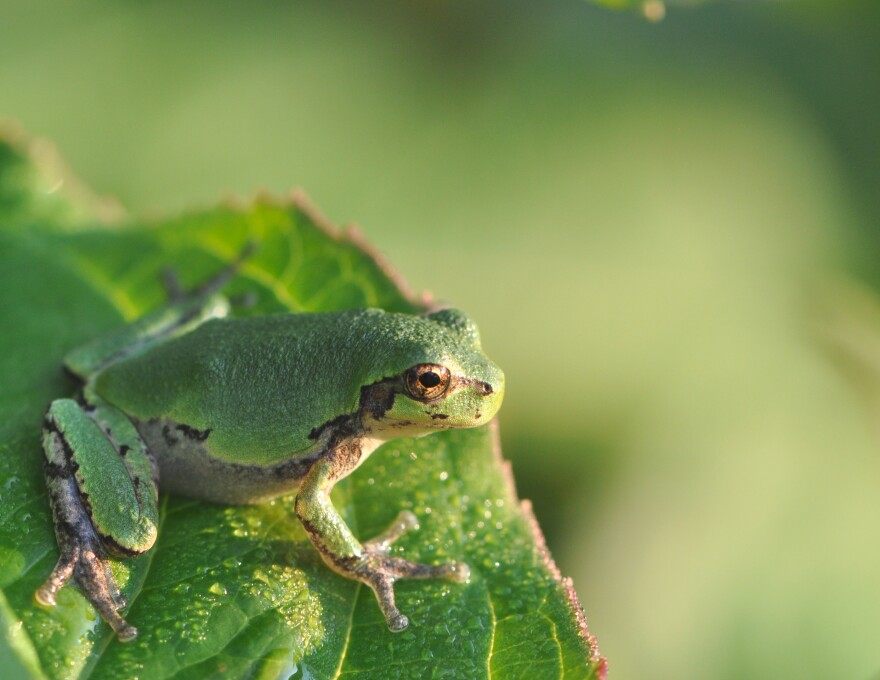Wildlife biologists need the help of Iowa residents to monitor frog and toad populations. The research could tell scientists more about the state’s water quality.
With temperatures on the rise, Iowans will soon be able to hear the calls of chorus frogs and American toads. Later on in the season, spring peepers, bull frogs and Fowler's toads will add their voices to the mix, along with a dozen other species.
The Department of Natural Resources needs citizen scientists to help identify and monitor the animals at more than 400 sites across the state. DNR wildlife biologist Stephanie Shepherd says because amphibians have moist, porous skin, their populations are tied to the health of their environment.
“They can actually breathe through their skin and they soak up their environment. And it’s what makes them so vulnerable to toxins and pesticides and things in the water that aren’t supposed to be there,” Shepherd explained.
Shepherd says scientists can learn more about the overall condition of Iowa's wetlands by monitoring frogs and toads.
“They’re pretty good indicators of the environment. They’re pretty sensitive to environmental toxicity," she said. "It’s another way of looking at water quality.”
Shepherd is currently teaching residents how to conduct the field work. From April through July they'll head out to sites across the state to listen for croaking frogs and toads and record their findings.
The next training session is scheduled for Thursday April 12th at 6:30pm at the Dorothy Pecaut Nature Center in Sioux City.


